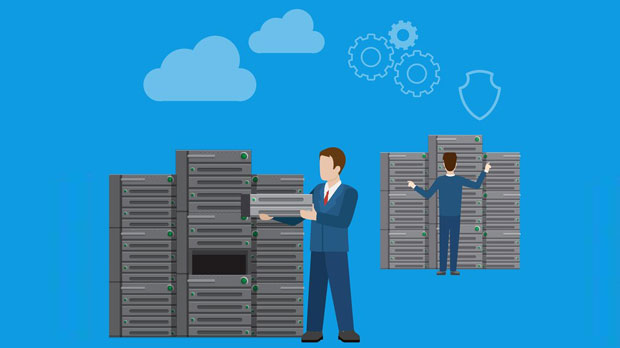PYPROXY is a powerful tool that simplifies the integration of socks5 proxy services, specifically residential proxies, for various online activities. As demand for secure, anonymous, and fast internet access increases, sock s5 proxies provide an ideal solution for users who need a stable and high-performance connection. Residential proxies, in particular, allow users to mimic genuine user behavior, making it almost impossible for websites to detect proxy usage. PyProxy's role is crucial in facilitating this setup, ensuring seamless operation and a secure browsing experience. Introduction to SOCKS5 and Residential ProxiesThe SOCKS5 protocol is one of the most versatile and efficient proxy technologies, supporting a wide range of internet activities, including browsing, gaming, and web scraping. Unlike earlier versions, SOCKS5 supports both TCP and UDP connections, making it suitable for a broader variety of applications. In the context of residential proxies, SOCKS5 enhances the ability to route traffic through real residential IP addresses rather than data center IPs, which are easily recognized and blocked by websites. Residential proxies are highly valuable for tasks like geo-targeting, data scraping, and ensuring anonymity during online activities.Why SOCKS5 Is Preferred for residential proxy ServicesSOCKS5 offers several advantages over other types of proxies. First and foremost, it provides a high level of anonymity. Unlike HTTP or HTTPS proxies, which only work for web traffic, SOCKS5 operates on a lower level of the OSI model and can support a wider variety of applications, including torrenting, gaming, and more. Residential proxies using SOCKS5 are especially beneficial as they appear as regular internet users, minimizing the risk of detection.Another key advantage of SOCKS5 is its support for multiple authentication methods, allowing users to secure their connections with usernames and passwords. This adds an extra layer of security, making it harder for unauthorized users to access the proxy service.PyProxy and Its Role in Supporting SOCKS5 Residential ProxiesPyProxy’s integration with SOCKS5 residential proxies simplifies the process for users to take advantage of the benefits offered by this technology. With PyProxy, users can manage their residential proxy network efficiently, allowing for easier configuration and operation of SOCKS5 services. PyProxy helps in several key areas:1. Proxy Setup Automation: PyProxy automates the setup process, reducing the complexity of configuring SOCKS5 residential proxies. Users can easily integrate the proxy service into their systems without needing to understand the intricate details of network configuration.2. Traffic Management: One of the core functions of PyProxy is its ability to handle large amounts of traffic without compromising performance. By intelligently routing requests through residential IP addresses, PyProxy ensures that internet traffic is consistent and reliable, even during high-demand periods.3. Anonymity and Security: PyProxy helps maintain high levels of security by utilizing residential IPs. These proxies provide a layer of anonymity, ensuring that the user’s real IP address is never exposed to the target websites. This is crucial for maintaining privacy while browsing or engaging in web scraping.4. Geo-Targeting: Residential proxies are particularly useful for geo-targeting because they can simulate access from various locations. This is especially important for marketers or data analysts who need to collect region-specific data. PyProxy simplifies the use of these proxies, making it easy to rotate IPs and select the most appropriate geographic region for each task.Advantages of Using PyProxy with SOCKS5 Residential ProxiesWhen PyProxy is paired with SOCKS5 residential proxies, it offers a range of benefits that enhance user experience and optimize the functionality of the proxy service.1. Enhanced Reliability: SOCKS5 residential proxies are known for their high reliability. By integrating this protocol with PyProxy, users ensure a consistent connection without interruptions. This is particularly important for activities like online gaming or large-scale data scraping, where any disruption could result in significant losses.2. Lower Risk of Detection: Because residential proxies are routed through real residential IP addresses, they are far less likely to be flagged or blocked by websites. This makes them ideal for tasks like web scraping or managing multiple social media accounts, where detection and blocking could lead to loss of access or data.3. Optimized Performance: PyProxy is designed to optimize the performance of SOCKS5 proxies, ensuring that users can benefit from the maximum potential speed and stability. The system dynamically adjusts to the user’s needs, routing traffic efficiently and reducing latency.4. Cost-Effectiveness: While residential proxies may be more expensive than data center proxies, PyProxy’s ability to streamline the setup and management process helps users make the most of their investment. By optimizing the use of residential IPs, PyProxy allows users to access high-quality proxies without overspending on unnecessary resources.Use Cases for SOCKS5 Residential Proxies with PyProxyThe combination of PyProxy and SOCKS5 residential proxies can be utilized in various fields where secure, anonymous, and high-performance internet access is necessary. Here are some notable use cases:1. Web Scraping: Web scraping requires large volumes of data to be extracted from websites without triggering blocks or CAPTCHAs. By using residential proxies with SOCKS5, PyProxy ensures that each request appears as if it comes from a unique user, minimizing the risk of detection.2. SEO and Marketing: Marketers often rely on proxies to gather data from different geographic locations. With SOCKS5 residential proxies, marketers can simulate user activity from various regions, enabling accurate testing of website performance and ad targeting.3. Social Media Management: Social media managers often need to create and manage multiple accounts across different platforms. Using SOCKS5 residential proxies with PyProxy ensures that these accounts are not detected or flagged as bots.4. Online Gaming: Gamers use proxies to access games or servers that may be region-locked. By utilizing SOCKS5 residential proxies, players can maintain a low risk of detection, while enjoying uninterrupted gameplay from any location.Conclusion: The Future of SOCKS5 Residential Proxies with PyProxyIn conclusion, PyProxy’s integration with SOCKS5 residential proxies offers a powerful solution for anyone looking to maintain anonymity, security, and high performance while using the internet. With its ease of use, cost-effectiveness, and ability to handle large amounts of traffic efficiently, PyProxy ensures that SOCKS5 proxies can be deployed for a variety of purposes, from web scraping to online gaming and marketing. As online privacy concerns continue to grow, tools like PyProxy will play an increasingly important role in helping users achieve a secure, anonymous, and reliable internet experience.
Aug 19, 2025



































































